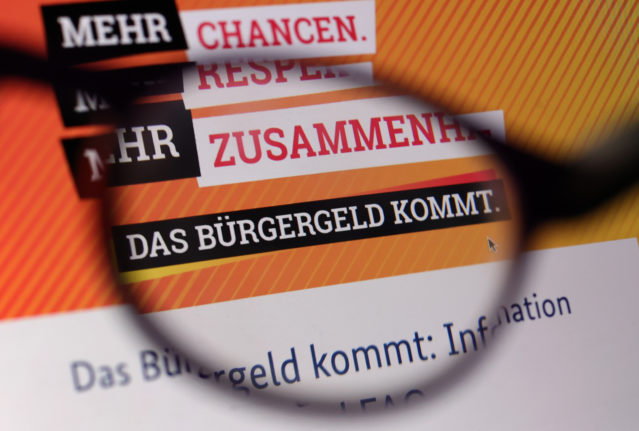The number of dollar millionaires in Germany grew significantly last year, according to the World Wealth Report 2020 by the consulting firm Capgemini.
The research estimates the number of Germans with assets of one million dollars or more at 1.46 million (the World Wealth Report calculates in dollars for international comparability), reported Spiegel on Thursday.
READ ALSO: Who belongs to the top 10 percent of earners in Germany?
This group grew by more than 100,000 people, or 8.6 percent, compared to the previous year.
It means Germany has the third largest number of dollar millionaires after the USA and Japan, according to the ranking.
Number of millionaires worldwide growing
It comes despite Germany only just escaping recession in 2019. Calculated over the year, the economy as a whole grew by only 0.6 percent.
Nevertheless, Germany's development at the top of the wealth distribution ranking is fully in line with the global trend: the rich are getting richer – and at a much faster rate than everyone else.
READ ALSO: One percent of Germans 'own 30 percent of country's wealth'
According to Capgemini, the number of dollar millionaires worldwide also rose by almost nine percent last year – despite trade wars and geopolitical tensions.
The report estimates that the net worth of wealthy people across the world climbed to 74 trillion dollars at the end of 2019, up 8.7 percent from 2018 and 46 trillion dollars in December 2012.
The population of millionaires reached almost 20 million, including 183,400 with a net worth above 30 million dollars, compared to 18 million dollars in 2018 and just 12 million dollars in 2012.
USA at the top of rich-boom
Here's one reason for the millionaire boom– fuelled by low interest rates, many real estate prices have risen sharply despite the fact that the economy has already been weakening in 2019.
This was particularly noticeable in the US, where the phenomenon was exacerbated by the consequences of a tax reform where US President Donald Trump massively relieved the burden on companies and corporations.
And now for the technical part: the major US stock market indices all rose rapidly: the S&P went up by almost 29 percent, the Dow Jones by 22 percent, and the Nasdaq increased by more than 35 percent.
This is one of the reasons why the USA is at the top of this year's rich-boom: the number of millionaires there rose by eleven percent or almost 600,000 to 5.9 million. In 2019, for the first time since 2012, the increase was also higher in North America and Europe than in the Asia-Pacific region (plus 8 percent).
On the list Japan came second after the US with 3.4 million millionaires, followed by Germany, China (1.3 million in 2019) and France (0.7 million).
However, the outlook for 2020 is likely to be significantly different in view of the recession triggered by the pandemic.
According to estimates, investment markets lost up to 18 trillion dollars during the coronavirus crash on the stock markets in March.
Since then, however, there's been some recovery on the stock markets. We'll have to wait and see if the crisis seriously impacts the pockets of the super wealthy.
Vocabulary
Millionaires – (die) Millionäre
Grew significantly – deutlich gewachsen
German economy – (die) deutsche Wirtschaft
Trade war – (der) Handelskrieg
We're aiming to help our readers improve their German by translating vocabulary from some of our news stories. Did you find this article useful? Let us know.




 Please whitelist us to continue reading.
Please whitelist us to continue reading.
Member comments